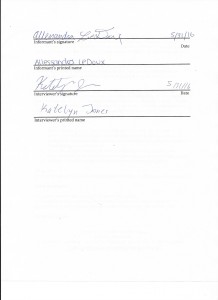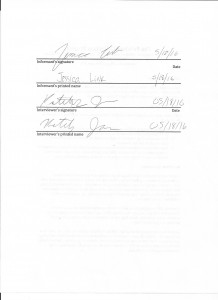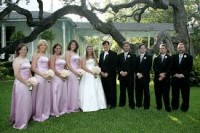1. Title: The Foco Challenge
2. Informant Information:
Kyra Maxwell was born and raised in Washington D.C. She is studying Asian and Middle Eastern Studies and Computer Science as a sophomore at Dartmouth College. Her favorite place to eat on campus is KAF, and she can often be found in Baker Lobby with 2-3 empty KAF cups strewn about.
3. Type of Lore (Genre and Sub-genre): Customary Lore, tradition
4. Language: English
5. Country of Origin: Hanover, New Hampshire, United States
6. Social/Cultural Context:
The Class of ’53 Commons, more informally known to the student body as “Foco,” is the main, all-you-can-eat dining hall on campus. It is known for being very “facetimey,” a Dartmouth slang word for someone or somewhere that is very social. For this reason, many people go to Foco just to socialize with friends and make small talk with acquaintances.
7. Associated File: Audio:
8. Transcript:
“The Foco challenge is this really cool tradition that we have at Dartmouth. It’s one of the less well-known ones, but me, I’ve actually seen someone do it! Basically there are a lot of organizations on campus such as Greek houses that have certain events every term where you need to invite a date, like semi and formal. The Foco Challenge is when you go to the dark side of Foco, stand on a table and get everyone’s attention, and then ask the whole crowd if anyone wants to go to your event with you.”
9. Informant’s Comments:
“It takes a lot of guts to do the Foco Challenge, I don’t think I would ever be able to do it. But the time I saw it happen, everyone in the crowd was really supportive and excited, and a random person agreed to go!”
10. Collector’s Comments:
I have also seen the Foco Challenge completed, and as Kyra said, the crowd was very supportive and enthusiastic. In my opinion, the fact that people feel comfortable enough to perform such a bold act highlights the community that is formed by these dining facilities.
11. Tags/Keywords: Foco, challenge









